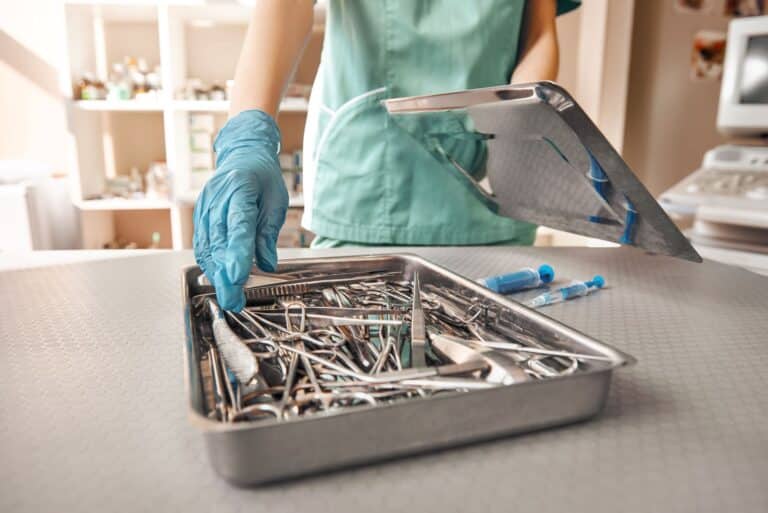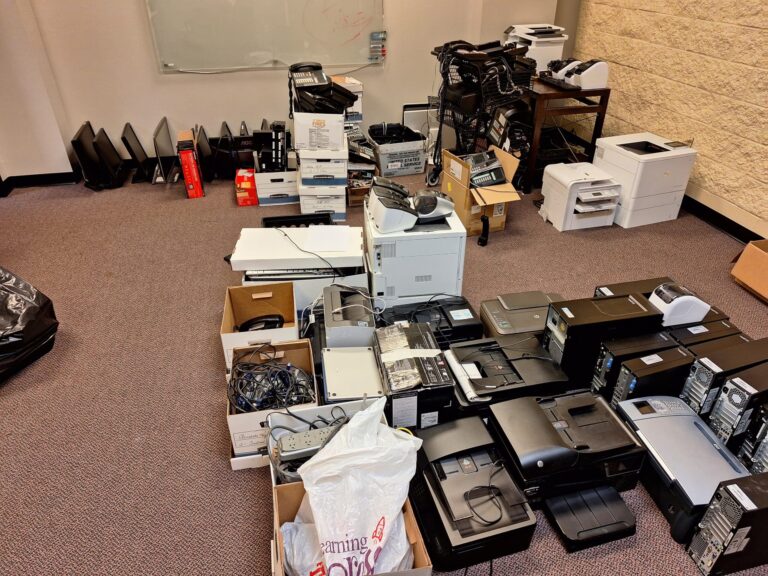The healthcare industry in Atlanta relies heavily on advanced medical equipment for delivering quality patient care. As technology continues to evolve, medical facilities must upgrade their equipment and securely dispose of outdated devices. With a growing emphasis on environmental sustainability and regulatory compliance, proper medical equipment disposal is critical for healthcare organizations in the region.
Effective medical equipment disposal brings numerous benefits to healthcare facilities, including protecting sensitive patient data, ensuring compliance with complex regulations, reducing electronic waste, and promoting a sustainable, circular economy. Proper disposal practices also contribute to a positive public image and reputation for healthcare providers by reflecting their commitment to environmental responsibility and data privacy.
By understanding the importance of proper medical equipment disposal and implementing responsible practices, healthcare facilities in Atlanta can support environmental sustainability, maintain regulatory compliance, and safeguard sensitive patient data, ultimately contributing to a better healthcare environment for all.
Regulations Governing Medical Equipment Disposal in Atlanta
Healthcare facilities in Atlanta must adhere to strict regulations when disposing of medical equipment. These regulations are designed to protect public health, ensure data privacy, and maintain environmental integrity. Key regulations and guidelines that govern medical equipment disposal in Atlanta include the following:
1. The Health Insurance Portability and Accountability Act (HIPAA): HIPAA mandates the protection of patient data, including data stored on electronic medical devices. Healthcare facilities must securely destroy patient information on equipment slated for disposal to maintain HIPAA compliance.
2. The Environmental Protection Agency (EPA): EPA regulations require proper disposal or recycling of medical equipment containing hazardous substances to minimize environmental and public health risks.
3. State and Local Regulations: Specific state and local regulations in Georgia govern medical equipment disposal, including the management of electronic waste (e-waste). Healthcare facilities must adhere to these regulations to avoid potential fines and legal troubles.
Environmental Implications of Medical Equipment Disposal
Inadequate disposal of medical equipment not only compromises data privacy and compliance but also poses significant risks to the environment. Environmental implications of improper medical equipment disposal include the following:
1. Toxic Waste: Many medical devices contain hazardous materials such as heavy metals and chemicals, which can contaminate soil, air, and water resources if not handled properly.
2. Resource Depletion: Disposing of usable materials in medical equipment contributes to resource depletion and increased demand for raw materials, leading to environmental harm and higher costs.
3. Landfill Burden: Improper disposal of medical equipment increases the burden on landfills and waste management systems, further aggravating environmental and public health issues.
Best Practices for Medical Equipment Disposal in Atlanta
To foster an eco-friendly, secure, and compliant medical equipment disposal process, healthcare facilities in Atlanta must incorporate the following best practices:
1. Inventory Management: Maintain an up-to-date inventory of all medical equipment designated for disposal, noting the make, model, age, and any hazardous materials that may require special handling.
2. Data Security Measures: Implement secure data destruction methods to eliminate sensitive patient data from devices before disposal, ensuring compliance with data privacy regulations like HIPAA.
3. Hazardous Material Handling: Identify and segregate medical equipment containing hazardous materials such as mercury, lead, or chemicals, and follow EPA guidelines for proper handling and disposal.
4. Reuse and Refurbishment: Consider donating or refurbishing functional medical equipment for reuse, promoting a circular economy and reducing environmental impact.
5. Work with a Certified Recycling Center in Atlanta: Partner with a reputable recycling center in Atlanta that is knowledgeable about medical equipment disposal regulations and capable of providing secure, environmentally responsible disposal services.
Collaborating with a Reputable Recycling Center for Clinic Equipment Disposal
Selecting the right recycling partner is essential for healthcare facilities in Atlanta, striving to dispose of their medical equipment responsibly. Here are some factors to consider when choosing a recycling center:
1. Certifications and Compliance: Ensure the recycling center holds industry certifications like R2 or e-Stewards, indicating their adherence to stringent recycling standards and regulatory compliance.
2. Experience with Medical Equipment: Look for a recycling center experienced in handling medical equipment, capable of managing specific regulations and guidelines associated with these devices.
3. Data Destruction Services: Verify the recycling center’s data destruction capabilities, such as software-based data erasure or physical destruction, which helps protect patient information and maintain compliance.
4. Transparency and Documentation: Choose a recycling partner that provides transparent communication and documentation of the disposal process, including certifications of data destruction and disposal, to ensure regulatory compliance and auditing requirements are met.
Impact of Proper Hospital Equipment Disposal on Public Health
In addition to the environmental and regulatory considerations, the proper disposal of medical equipment also has a direct impact on public health in Atlanta.
1. Prevention of Disease Transmission: Effective disposal practices help prevent the spread of infectious diseases by ensuring that contaminated medical equipment is properly handled and disposed of, reducing the risk of transmission to healthcare workers, patients, and the community.
2. Protection of Community Well-being: By minimizing environmental contamination from hazardous materials present in medical devices, proper disposal contributes to overall community health and well-being, reducing the potential for long-term health issues associated with exposure to toxins.
3. Support for Healthcare Access: Sustainable disposal practices contribute to the efficient use of resources, potentially lowering the overall cost of healthcare services in Atlanta. This can enhance healthcare access and affordability for underserved communities by redirecting funds towards patient care and facility improvements.
Conclusion
By implementing responsible medical equipment disposal practices, Atlanta healthcare facilities can support environmental sustainability, safeguard patient data privacy, and ensure compliance with complex regulations. Partnering with a certified recycling center in Atlanta that is experienced in handling medical equipment is vital to achieving these goals, ultimately creating a safer and more sustainable healthcare ecosystem.
Beyond Surplus is your trusted nationwide partner in IT asset disposition and recycling. We provide secure, environmentally responsible solutions for obsolete IT equipment. Contact us today to discuss responsible and secure medical equipment disposal options tailored to your facility’s needs, including electronics recycling in Atlanta.


